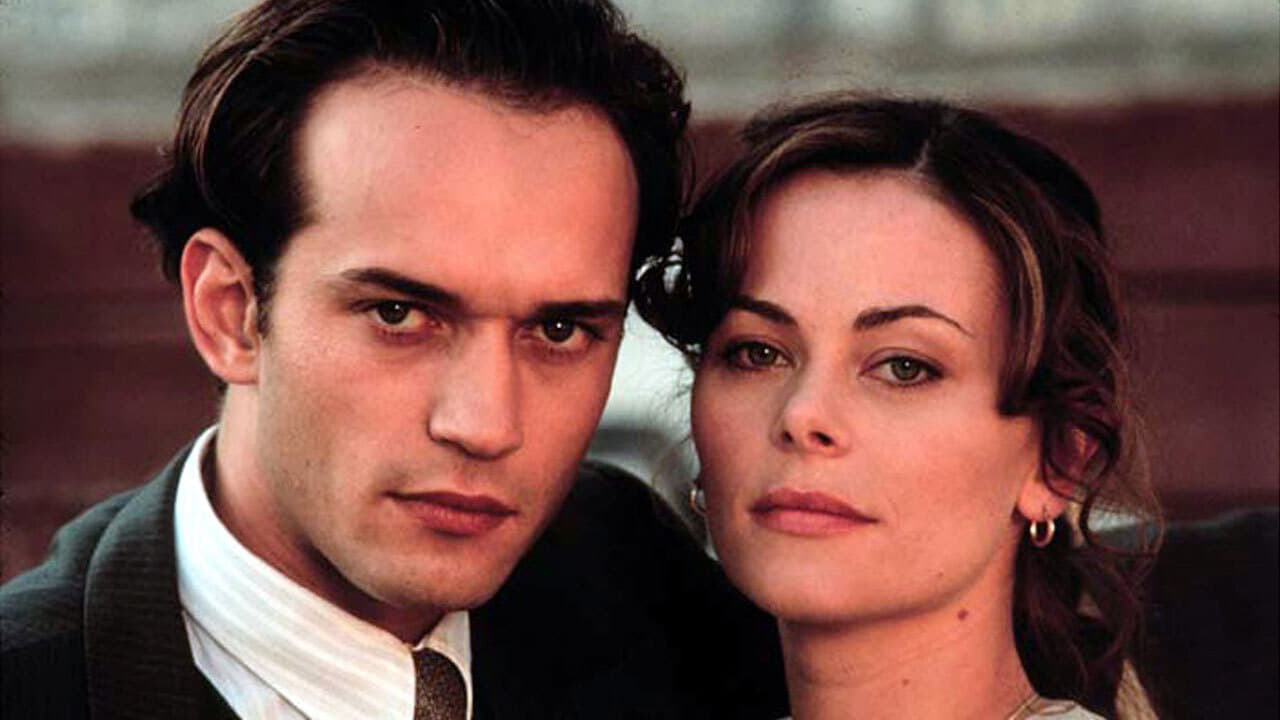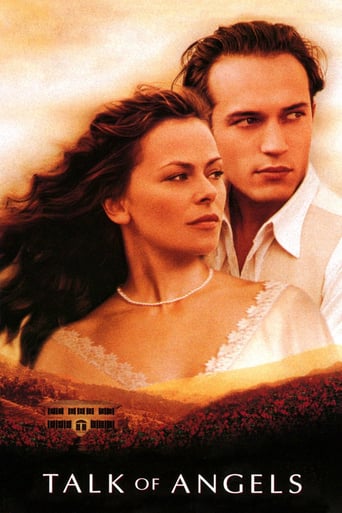Diagonaldi
Very well executed
Supelice
Dreadfully Boring
Infamousta
brilliant actors, brilliant editing
Aneesa Wardle
The story, direction, characters, and writing/dialogue is akin to taking a tranquilizer shot to the neck, but everything else was so well done.
SnoopyStyle
It's the 1930's. Young Irish woman Mary Lavelle (Polly Walker) comes to Spain to work as governess in the Areavaga family. Political tension is pressuring the wealthy family. The married son Francisco (Vincent Perez) is politically active, and falls for Mary. The father Dr. Vicente (Franco Nero) is sympathetic but endeavors to stay moderate. Mary is unsure about her impending marriage to a political activist in Ireland.Interestingly, it features Frances McDormand in a minor role as another Irish governess, and Penélope Cruz as one of the daughters. Franco Nero is giving tremendous depth to the movie. Polly Walker seems a bit too old for the role. The character is better served to have younger more naive 20something.The production value could be better. It feels like a higher end made-for-TV movie. The backdrop of Spanish political instability adds a great deal of tension. Without a doubt, this is a soapy romance. Sometimes, it's abrupt like pages are missing from a book. And the ending isn't that satisfying with many questions left unanswered.
tedg
It may be the oldest storytelling device in the world. You take external events, usually a war or some political oppression. You draw grand sweeps that show passion and scope and boundless consequence.And in this opulence of effect you place a love story, folded within if you wish.After all, there is no emotion in existence that is stronger than romantic love and all its twists and perversions. But these are impossible to display because they are internal. So these internal locomotives are given the external clothes of the other fold.How many of our great stories are thus framed? How many films?Well, here's one. I suppose you judge these things on how powerful the emotions are that the love story evokes. This is a sort of "Casablanca" with the genders reversed. The woman needs to stunt her passions and "give" her lover to the higher fold, and live forever with the memory of one encounter.I admit, this rings solidly for me. I shake when I shape it in my heart.Back to the judgment: how effectively is this expressed in a way that the film plumbs and guides the waters of the heart it pulls. Does the thing give us tides?Well, the people are beautiful. But oddly, we know these actors from elsewhere and they have been more beautiful there. In particular we depend on Polly Walker here. She has an extraordinary appeal in other projects. "8 1/2 Women" was a difficult movie to survey, but once it sticks, it is Polly who pulls us through the canals of desire. "Enchanted April" was slight but she was powerful.She acts with her brow and has one of the most appealing brows in film.But, alas. Although lots of money was spent. And the sets are effective, we have something like "Head in the Clouds" where we know what we are supposed to get. And we might get it by mere suggestion but the film actually gets in the way.So the bad guys win this time. No passion.Ted's Evaluation -- 1 of 3: You can find something better to do with this part of your life.
docrob44
From reading the previous viewer contents one would never be able to truly appreciate what a marvelous film this was. Perhaps one of the reasons I reacted so positively to this film was that I lived through that period of the Spanish Civil War which had great meaning for many millions of Americans. It was, of course, the preview to WWII with the Germans backing General Franco and the Russians supplying the rebels. However even without the drama of pre civil war Spain the film stands up well on its own as a beautiful love story. An especially provocative theme of the movie is reflected in Maria's comment that "We are shown what it is we most desire but we cannot have it". Unfortunately this poignant comment is all too true for countless millions of folks. One important segment of the film not mentioned by previous viewers is the magnificent musical score. Its recurring melodic themes have a hauntingly beautiful effect which serves to enhance the sensuous love scenes between the two principals.
cal-33
I really wanted to love this movie. I did love Vincent Perez, who always imbues his characters with smoldering good looks and charm and fine character. But there was no motivation for their romance, other than the fact that he was a man and she was a woman, and the movie was a love story. We never see why he falls for her, especially since he is rarely in the house with her. More chemistry is generated between Lavelle and her friends, and between herself and the family she takes care of. And the ending, without giving it away, made the movie kind of pointless. Rent it for Vincent, not the story.

